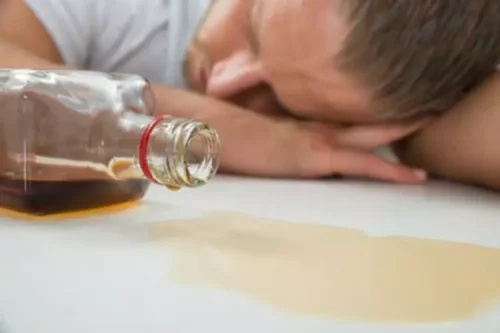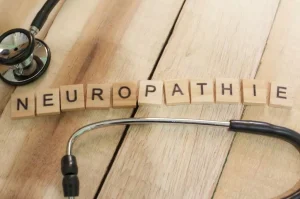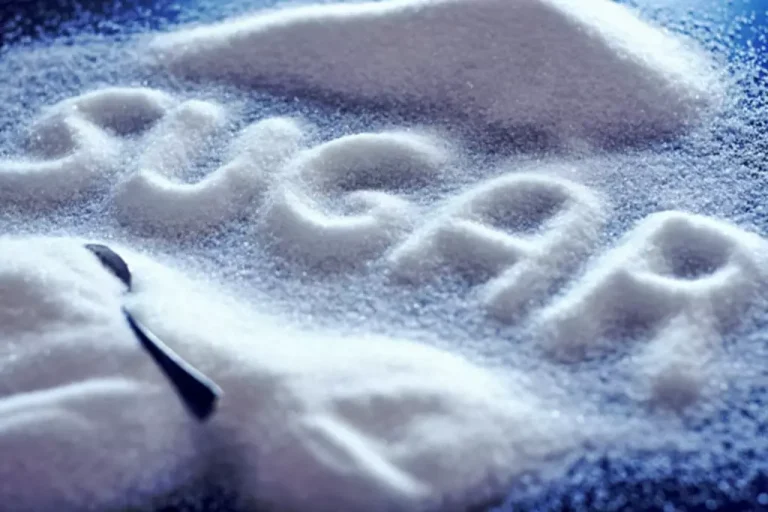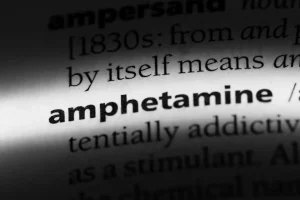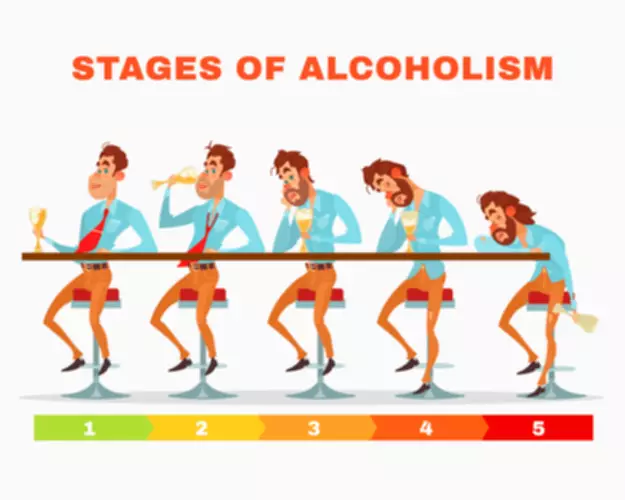Medical professionals can provide patients with a safe and comfortable detox experience. It’s also possible, however, for withdrawal symptoms to continue for several weeks. In rare cases, a person undergoing alcohol detox may experience more persistent withdrawal-related symptoms. These may include sleep disturbances, fatigue, and mood changes—that last for months.

The ASAM Alcohol Withdrawal Management guideline aids clinicians in their clinical decision-making and management of patients experiencing alcohol withdrawal syndrome in both inpatient and ambulatory settings. Intended to aid clinicians in their clinical decision making and management of patients experiencing alcohol withdrawal syndrome. In many cases, physical symptoms of alcohol withdrawal will largely begin to decrease and altogether and resolve within 5 to 7 days. If you’re a heavy drinker—even if you don’t have alcohol use disorder—you’re likely to experience at least some symptoms if you stop drinking suddenly. Heavy drinking occurs when women have eight or more drinks a week and men have 15 or more drinks per week.
Additional Alcoholism Treatment Options
Adjunctive treatment with a beta blocker should be considered in patients with coronary artery disease, who may not tolerate the strain that alcohol withdrawal can place on the cardiovascular system. Doctors usually use a type of drug called benzodiazepines to reduce alcohol withdrawal symptoms. A doctor can often diagnose alcohol withdrawal syndrome by taking a person’s medical history and doing a physical exam. Alcohol withdrawal syndrome occurs when a person with alcohol use disorder stops or suddenly decreases their alcohol intake. Alcohol use disorder is a pattern of alcohol use that involves problems controlling your drinking, being preoccupied with alcohol or continuing to use alcohol even when it causes problems.
During this time, you’re most at risk of temporarily losing consciousness, developing delirium tremens, and having seizures. Medical professional can assess your mental and physical health frequently throughout the day to make sure symptoms do not escalate. It is generally assumed that successful management of the alcohol withdrawal syndrome provides a basis for subsequent efforts at rehabilitation. Social detoxification, which involves the nonpharmacological treatment of alcohol withdrawal has been shown to be effective. It consists of frequent reassurance, monitoring of vital signs, personal attention, and general nursing care. Increasingly, detoxification is being done on an ambulatory basis, which is much less costly than hospital-based detoxification.
Timeline of Alcohol Withdrawal
Your doctor may be able to connect you with shelter programs for people recovering from alcohol addiction. By Buddy T
Buddy T is a writer and founding member of the Online Al-Anon Outreach Committee with decades of experience writing about alcoholism. Because he is a member of a support group that stresses the importance of anonymity at the public level, he does not use his photograph or his real name on this website. Hospitals and detox centers have experienced staff who are familiar with these symptoms and have the tools to provide appropriate treatment.
- In a heavy, long-term drinker, the brain is almost continually exposed to the depressant effect of alcohol.
- The values in the diverse models are not directly comparable because of significant experimental differences.
- Unhealthy alcohol use includes any alcohol use that puts your health or safety at risk or causes other alcohol-related problems.
- So, the person must formulate a plan of how they will abstain from alcohol during this crucial time.
- In cases where a person has become physically dependent on alcohol, these symptoms can be life-threatening if not overseen by a trained medical professional.
Depending on the clinical course and symptomatology, inpatient or outpatient detoxification can be necessary. Pharmacological treatment includes fluid intake, substitution of vitamins and minerals, and sedatives, predominantly benzodiazepines or clomethiazole (in Europe only). Toxicity from cocaine administration has systemic, psychiatric, and neurologic manifestations. Neurologic complications of cocaine use range from benign headaches to coma. Focal neurologic manifestations include subarachnoid hemorrhage, anterior spinal artery syndrome, lateral medullary syndrome, transient ischemic attacks, and cerebral infarction. Although the exact mechanism of cocaine-related cerebral vascular disease is unknown, adrenergic stimulation and surges in blood pressure may play a significant role.
Complications
Specialized rehab facilities offer many benefits to those struggling with alcohol addiction. For example, treatment providers will be able to help alleviate some of the most painful of withdrawal symptoms, as well as provide 24/7 support through the entire recovery process. Early identification of problem drinking allows prevention or treatment of complications, including severe withdrawal. The U.S. Preventive Services Task Force28 recommends screening patients for problem drinking through a careful history or standardized screening questionnaire. Several medications have shown early promise in the treatment of alcohol withdrawal.

Pharmacologic substances are typically administered 30 to 60 minutes before the time at which the AGS is elicited, but the choice of interval for any specific substance must be based on its pharmacokinetic characteristics. If the time of peak blood-brain levels is not known, a time course study should be carried out. Alcohol withdrawal delirium, or delirium tremens, is characterized by clouding of consciousness and delirium. After the initial alcohol withdrawal symptoms have subsided, some people may experience prolonged side effects.
As the alcohol wears off, these effects lead to common hangover symptoms, such as headache, nausea, and fatigue. Chronic alcohol use can cause complex changes in their brain, including to the neurotransmitters dopamine and gamma-aminobutyric acid (GABA), which affect excitement and a person’s sense of reward. Alcohol use disorder or drinking heavily over an extended period can change a person’s brain chemistry due to the continued exposure to the chemicals in alcohol. Because denial is common, you may feel like you don’t have a problem with drinking. You might not recognize how much you drink or how many problems in your life are related to alcohol use.
What happens after 3 months of no alcohol?
Although positive changes may appear earlier, 3 months of not drinking can not only improve your mood, energy, sleep, weight, skin health, immune health, and heart health. It can even reduce your risk of cancer.
Anyone who is having severe symptoms of alcohol withdrawal syndrome, such as seizures, hallucinations, or prolonged vomiting needs immediate medical treatment. Less frequently, people can develop severe symptoms of alcohol withdrawal syndrome. Those who consume 8 or more drinks a week or have a severe dependency on alcohol are far more likely to suffer from the impact of alcohol withdrawal symptoms.
Recovery Starts Today
A blood alcohol level and drug screen should be determined in individuals with alcohol and/or multiple drug abuse who present with coma. The values in the diverse models are not directly comparable because of significant experimental differences. This corresponds with the lack of effectiveness of these drugs for many forms of generalized seizures (although the drugs are generally believed to be useful for generalized tonic-clonic seizures). Delirium tremens rarely occurs among pediatric patients, because the physiologic substrate for severe https://ecosoberhouse.com/article/alcohol-withdrawal-symptoms-stages-and-treatment/ takes time to develop. Although RASS score is better than CIWA, no tool can replace bedside assessment by an experienced clinician.
- In addition, vitamin supplements may be given to replace essential vitamins that are depleted by alcohol use.
- Although alcohol withdrawal can be a dangerous and painful process, it is a necessary step on the road to recovery.
- In contrast, a person may develop a severe alcohol habit before their friends, family, colleagues—or even themselves—notice it.
- And, ultimately, regain their health, freedom, and genuine enjoyment of life.
To that end, you’ll need to make sure that you’re living in an environment that’s supportive to refraining from alcohol use. Alcohol withdrawal generally makes people feel exhausted, especially during the first few days as your body readjusts. You may also feel mentally foggy, like you can’t completely focus or concentrate. This is why it’s often necessary to set aside days for resting and allowing your body to heal if you’re going through alcohol withdrawal.
It can surface within the first 48 hours after your last drink and involves confusion, severe shaking, hallucinations, and high blood pressure. Heavy drinkers who suddenly stop drinking may experience any range of dangerous symptoms, so it’s important for those experiencing withdrawal to undergo medically-assisted detox. Symptomatology of alcohol withdrawal covers a wide range of symptoms, which develop few hours after the last drink with a peak on day two or three which usually subsides within four or five days. While alcohol withdrawal is usually mild in some cases a severe withdrawal syndrome can develop. A broad number of other symptoms may also be prevalent, depending on the patient’s physical condition.
What happens if I don’t drink alcohol for a week?
Many drinkers are surprised to find they stay hydrated for a lot longer when they don't drink. A week after your last drink, you will feel more hydrated, which could improve your oral health and even your skin health. After 7 days, most drinkers will notice their skin hydration improve.
The main inhibitory neurotransmitter is γ-amino-butyric acid (GABA), which acts through the GABA-alpha (GABA-A) neuroreceptor. One of the major excitatory neurotransmitters is glutamate, which acts through the N-methyl-D-aspartate (NMDA) neuroreceptor. Heavy alcohol use also depletes the body of vital electrolytes and vitamins, such as folate, magnesium, and thiamine. So, treatment may also include electrolyte corrections and multivitamin fluids. They may also do a blood test called a toxicology screen to measure the amount of alcohol in a person’s system.
